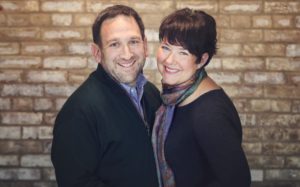We walked into the oncologist’s office knowing that Cassie had cancer again. Our care coordinator had told us that the appointment, scheduled for a few days after the biopsy, would be cancelled if cancer wasn’t found. The cancellation call never came as much as we had jumped up every time the phone rang. So we knew. But we still hoped that things would be ok.
That had long been our mantra whenever one of us was facing a tough day or week or a particular life crisis. The one of us who was struggling would turn to the other and say: “Everything is going to be ok, right?” And it usually was. Even when Cassie was first diagnosed with early stage breast cancer 16 years ago. We would work or fight through the situation together. Support each other. Remain optimistic. Remind each other that things were going to turn out ok.
Then, on Friday, July 13 2018, the doctor told us that Cassie has metastatic breast cancer. We had different understandings of what that meant but Dr. Leach clarified it succinctly. Metastatic means that it has spread. It’s automatically “Stage IV” (Dan naively or hopefully asked if there was another stage after that but the doctor just shook his head). It’s “treatable but not curable.” And finally, we probably shouldn’t plan on more than five or six years though he naturally caveated the shit out of that prognosis.
There we were. In shock. Looking at each other dumbstruck. Cassie had to go have more tests. Dan had to call our families. And then as we drove home Cassie said it: “Honey, things are not going to be ok.”
She’s right of course. Unless things change there is no good outcome for women with MBC. So what we are now trying to figure out is how do you live fully and full of love when you know things aren’t ok? That our time together is going to end way sooner than we want, that our days, weeks and years will likely be filled with sadness, grief and trauma, and all of that is on top of Cassie feeling exhausted and crappy. How do we live like this? How do we stay true to our values? Can we find joy in the sadness? What stays the same? What changes? All big questions and all emerged over the weeks that followed the diagnosis.
That day though we were consumed with only one question — how do we share this news and with whom? Cassie is super private. Dan not so much. Dan is on social media. Cassie not so much. Dan wanted to share with the world. Cassie with as few as people as possible. We resolved this by sending an email to our family and close friends and in subsequent weeks we shared a little more widely. Word got out. People now know — though we each still bump into friends whom, to our great chagrin, we forgot to tell. And, if you are one of them and reading this we are really sorry.
What became clear right away is that we had pretty different views on communicating about the cancer and its impact on our lives and that we had to reconcile those differences. Now on the one hand this is not a unique situation. All couples have to bridge disagreements and we’ve been doing that for twenty-plus years. On the other hand, a metastatic cancer diagnosis changes everything including how you communicate, solve problems and navigate differences. We think about the cancer differently. We think about life (and death) differently. We process Cassie being sick differently. And what we’ve found is that there are not a lot of resources to help us navigate all of this as a couple. There is a lot of support available for Cassie as a cancer patient and a lot of guidance for Dan as a caregiver but not a lot of help on how to do this together.
So we decided to start writing. To share our experiences. To get out of our heads. To help us process all this as a couple. We totally get that within the context of a horrible diagnosis we are fortunate to have time, space, resources and flexibility to reflect on all of this, talk it through, and try to find meaning where we can. We are grateful for that and we hope that by sharing some of what we are going through we can pay it forward.
Maybe that’s how we make today OK.
